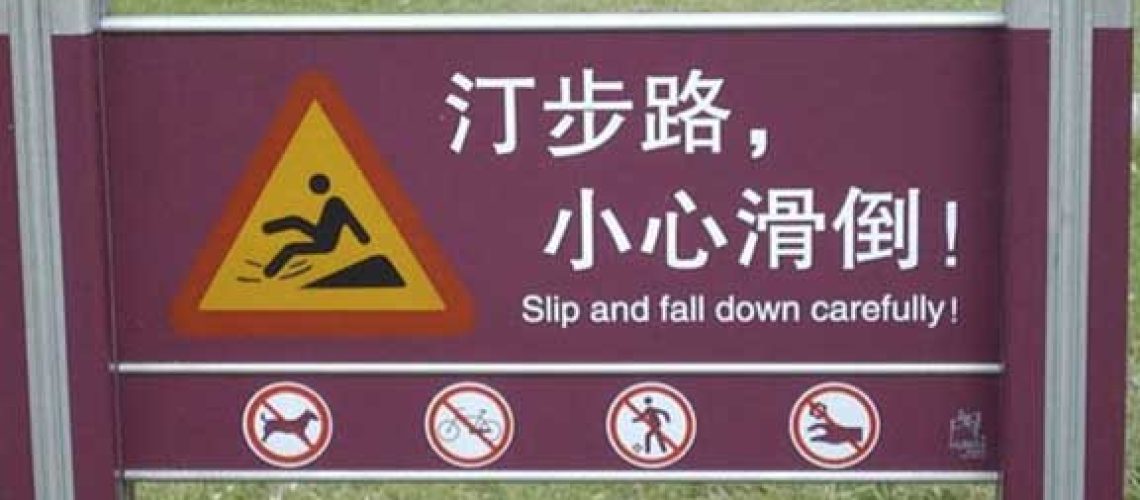The importance of correct translation becomes particularly evident when errors are discovered. The translator’s talent is represented in attention to details and the ability to analyze the overall picture and not so much in the knowledge of foreign languages. Even a small error sometimes leads to serious or even tragic consequences. Inaccurate transcriptions are changing the course of events. Using the expression “to be at ease”, we do not even guess where this idiom came from.
AdMe.ru found serious translation errors — some of them even changed the course of history.
The Khrushchev “Menace”
In 1956, at the heights of the Cold War, the first Secretary of the Soviet Union Communist Party Central Committee Nikita Khrushchev spoke at the Polish Embassy to representatives of different countries. Suddenly to surprise of those present Nikita said: “Like it or not, but the history is on our side”. “We’ll bury you” Western media perceived the words of the Soviet leader as a direct threat. In fact, Khrushchev wanted to quote Karl Marx that the proletariat is the gravedigger of capitalism, and the interpreter just used the literal translation.
The correct translation should have sounded different: “Socialism is more effective, so it will outlive capitalism”. Not to say that this phrase sounds more friendly, but it is rather a thesis from the book, than a threat to the Western World.
To be out of place
Popular idiom in Russian language came to us from the French language. In the XVIII century Russian aristocrats incorrectly interpreted “ne pas être dans son assiette”, which actually means “to be in an unenviable position”. The fact is that the word “assiette” has two meanings: “plate” and “body posture when riding”. However, the general public liked the figurativeness of the expression so much that it quickly caught on.
Why is Eve was created from Adam’s rib?
Many of us believe that the first woman Eve was created from the rib of the first man Adam. And we don’t question why is she created from the rib exactly. In fact, this basic knowledge is nothing more than a translation error, a translator who did not know that the Hebrew word “tsela” has two meanings: “the rib” and “reflection”. Therefore, the phrase should sound like this: “God created woman as a reflection of man”.
Jimmy Carter’s awkward offer
In 1977, U.S. President Jimmy Carter visited Poland. He took and expert in Polish interpreting and translations with him on board with him. Carter began his speech with a greeting: “I came to get your opinion and understand what the Polish people expect from the future”. The interpreter turned the President’s innocent phrase into “I want to enter into an intimate relationship with the poles”.
The troubles did not end with this. The words of the leader “I left the United States this morning” sounded in Polish as “I left the United States never to return”, which greatly excited the public. Later, the President’s speech was the occasion for numerous jokes.
It is easier for a camel to pass through the eye of a needle than for a rich man to enter the Kingdom of heaven
The famous saying of Christ “It is Easier for a camel to pass through the eye of a needle than for a rich man to enter the Kingdom of heaven” is found in the Bible twice. While some believe that it is hyperbole, others believe that the eye of a needle was the narrow fortress gates in Jerusalem.
In fact, the poetic saying arose from the carelessness of the translator, who confused the words “kamelos”, which means “camel”, and “kamilos” — “rope”. Therefore, it would be more correct to say “it is Easier to stretch the rope through the eye of a needle than for a rich man to enter the Kingdom of heaven”.
“Dog” Islands
It is a common misconception that the Canary Islands got their name from the Canaries living there. Surprisingly, but in fact everything is exactly the opposite – song birds were named after their place of their origin. The archipelago is named that way because of the large number of dogs living there, both wild and domestic.
The toponym “Canary” comes from the Latin Canariae Insulae, which literally means “Dog Islands”. According to another source, seals, who were uniting there in large colonies there used to be called “dogs”.
Waitangi Treaty
In 1840, the British signed an agreement with the Maori tribes to transfer New Zealand to the British administrative care. This Treaty is considered to be the basis for the creation of the state of New Zealand. The agreement was originally written in English and then quickly translated overnight by a local missionary. The Maori text contained a large number of errors and discrepancies with the original text, which had many contradictions. The locals agreed to the terms without going reading it thoroughly.
After both parties signed the agreement, the settlers gained full control over the aborigines and the possibility of selling the land, which was not outlined in the translated document. Dissatisfied Maori tribes organized armed revolts, and the new authorities suppressed them because the tribes did not fulfill the Treaty. By the end of the nineteenth century, The new Zealand authorities had decided that the papers don’t have any legal effect and voided them.
Let one’s thoughts flow over the tree
The well-known expression “let one’s thoughts flow over the tree”, meaning to speak about something at the great length, talk about abstract subjects and to go into unnecessary details, also appeared thanks to the errors in translation process. For the first time this phrase appears in the “The Word about Igor’s Regiment”, where the word “thought” is listed as “mys”, which is translated from old Slavonic as “squirrel”.
The sentence “If Boyan the prophet, wanted to create a song, was running up and down the three, ran on the ground as a grey wolf, flew like a blue eagle in the skies” and it should be interpreted in this way: “Boyan, creating his song, studied the whole world around him: he was running up and down the three like squirrel, ran on the ground like a gray wolf, flew like an eagle in the sky”.
The word that cost $ 71 million
In 1980, the Spaniard Willy Ramirez was taken to an American hospital. The patient was in a serious condition, but his family could not explain what happened because they did not know English. Ramirez had food poisoning. One of the staff members of the hospital translated the word “poisoned” from Spanish as intoxicated, but in English this word applies only to those who took a large dose of drugs or alcohol.
After the wrong diagnosis, doctors prescribed treatment, because of which the the man suffered complications and paralysis of the limbs. Later, the hospital paid him compensation in the amount of $71 million.
Have you ever had “difficulties in translation” in your life?








